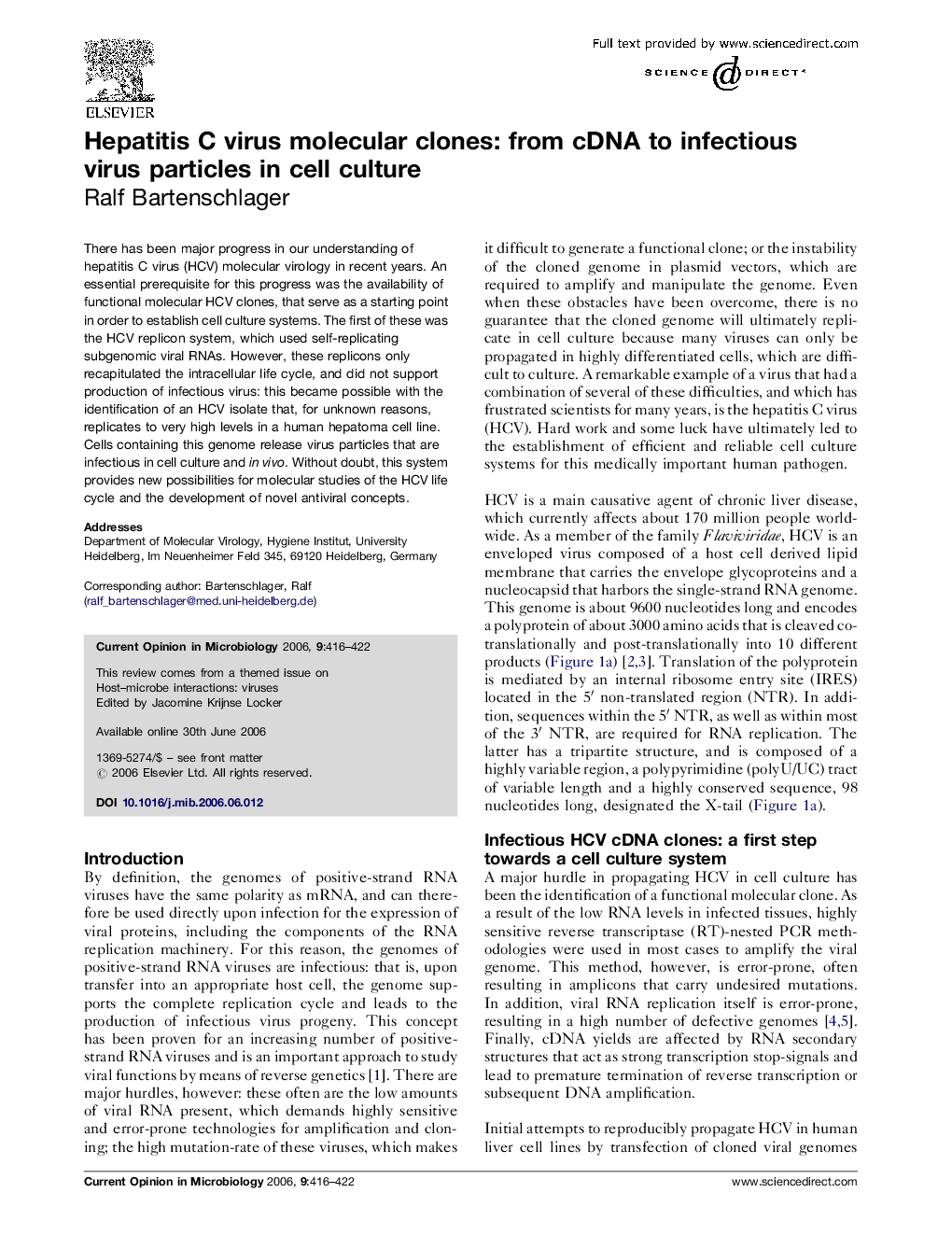| Article ID | Journal | Published Year | Pages | File Type |
|---|---|---|---|---|
| 3399724 | Current Opinion in Microbiology | 2006 | 7 Pages |
There has been major progress in our understanding of hepatitis C virus (HCV) molecular virology in recent years. An essential prerequisite for this progress was the availability of functional molecular HCV clones, that serve as a starting point in order to establish cell culture systems. The first of these was the HCV replicon system, which used self-replicating subgenomic viral RNAs. However, these replicons only recapitulated the intracellular life cycle, and did not support production of infectious virus: this became possible with the identification of an HCV isolate that, for unknown reasons, replicates to very high levels in a human hepatoma cell line. Cells containing this genome release virus particles that are infectious in cell culture and in vivo. Without doubt, this system provides new possibilities for molecular studies of the HCV life cycle and the development of novel antiviral concepts.
